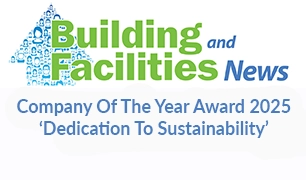Boris Johnson took to the stage last week to announce we must “grow up” as a species at the UN General Assembly. The UK Prime Minister spoke on how we must look towards greener living for the Glasgow Conference of the Parties (COP) 26 summit. This congregation, it is hoped, will build upon the Paris accord that, in 2015, for the first time saw a singular agreement for tackling global warming and cutting greenhouse-gas emissions.
Why is COP26 So Important?
COP26 will see representation from 200 countries to present plans to cut emissions by 2030 to keep global warming “well below” the Paris established 2°C above pre-industrial levels. The ultimate goal for tackling global warming is to aim for 1.5°C with Net Zero emissions by 2050 to avoid greater climate catastrophe by the end of the century.
Johnson observed that this is our “turning point” to do better and “that means we need to pledge collectively to achieve carbon neutrality – net zero – by the middle of the century.” He expressed clearly the urgency in the actions needed to be taken to, not only, save ourselves but the many species which live on this Earth.
Those countries attending are expected to formally announce their plans for reducing emissions and tackling global warming in the coming weeks prior to the commencement of the summit, with more announcements expected during the two weeks of planned talks.
The US has announced a major investment in green initiatives with an $11.4bn per annum contribution in climate finance and China this week has announced plans to cease construction of overseas coal plants. Though generally welcomed, the latter move currently fails to address the use of domestic coal-fired plants, one of the easiest ways for green gains to be quickly achieved at a national level.
The Real Challenge of “Going Green”
With coal removed, the challenge of tackling global warming really sets in. The UK’s carbon budgets are well known to now be off track, and the Green Alliance has stated current plans will deliver less than a quarter of the cuts needed to meet the UK’s aggressive 2030 climate goal – intended to cut 78% of emissions from a 1990 baseline by 2035. The target also fails to account for emissions created abroad in the process of manufacturing goods bought in the UK. This issue of embedded carbon in the supply chain is a complex and difficult challenge that will no doubt be brought to bear on commercial organisations already facing ESOS audits and SECR reporting, and is why open, large scale support for COP26 from the likes of China is so critical.
Here in the UK, the government’s promise to put effective policies in place has been slow to materialise. Disagreement over the future of gas boilers and wider green funding has held up key announcements that should be delineating much-needed guidance for a commercial sector facing immense change and considerable capital and operational outlay if Net Zero is to be realised.
An End to Coal Power?
There is, however, a cautious sense of progress, with great attention being turned to the meeting in Rome late in October of the G20 nations. Together these are responsible for 80% of current global emissions. If these nations can agree to cease the use of coal, COP26 has the potential to be one of the most decisive events since Paris if it can lead to a speeding up of the global phasing out of coal power. Then the real work starts. Additional agreements on the reduction of deforestation, a more rapid switch to electric vehicles (EVs) and wider protection from the impact of climatic extremes are all expected to be key objectives.
Johnson declared how these opportunities to become greener are not out of reach as “We have the technology: we have the choice before us.”
Striking a Balance When Heating Commercial Buildings
From the commercial perspective, Adveco is one of the leading proponents of how technology can be best applied when tackling global warming by supporting a more sustainable approach, particularly for the delivery of business-critical hot water. We recognise the importance of excluding fossil fuels from future commercial systems and advocate all-electric systems for new builds. We also understand the implicit costs and difficulties of retrofit and replacement of systems throughout the thousands of legacy commercial buildings that define the UK’s urban landscape. For this reason, we also strongly support the continued use of gas, but within a hybrid approach to provide cost-effective, lower carbon applications that remain future-ready for next-generation Net Zero technologies, and in particular Hydrogen mixes for commercial hot water & heating.
 Speak to Adveco about tackling global warming through efficient, low-carbon commercial hot water and heating systems (For schools, hospitals and care homes too!)
Speak to Adveco about tackling global warming through efficient, low-carbon commercial hot water and heating systems (For schools, hospitals and care homes too!)
Call us on 01252 551 540 or see our other contact details.
















